We are all Mia Khalifa
- Text by Alya Mooro
- Photography by Jimmy Fontaine

A version of this story appears in Issue 79 of Huck. Get your copy now, or subscribe to make sure you never miss another issue.
We are all Mia Khalifa. And not just in the tongue-in-cheek way that the world’s arguably most notorious brown woman references, in the bio of her 27.6 million-strong Instagram account: “Are you even a brown girl with glasses if you haven’t been called Mia Khalifa?”
It wasn't entirely what I was expecting, when I first logged onto a Zoom call with the Lebanese-born, US-raised 30-year-old, but two minutes into the conversation with the barefaced Mia, sitting in a tan silk shirt in front of a colour-coordinated bookshelf in her Miami home, it felt like we had long been friends.
It wasn’t just because I, like Mia, am also a Middle Eastern woman in her early 30s who moved to the ‘West’ at the age of eight. One who also lives outside the stereotypes and expectations of what culture — both East and West – would like to box us into, although, for sure, that helped. Especially when we began the conversation joking about shaving our then-considered bushy (now considered on trend) eyebrows off, in our respective school bathrooms. It was the candour and authenticity of a woman who, despite having all the reasons in the world to be guarded, seems like she has never been more herself.


Having moved to Maryland from Lebanon in 2001, amid conflict in her home country, Mia is a third-culture kid through and through, with all the push and pull that comes with that. “The push was my parents pushing the culture onto us so that we don’t forget it, and the pull was me pulling back and trying to integrate into American culture so I could have some fucking friends,” she laughs. “It was not cool to be the kid bringing in a zaatar sandwich for lunch...
“[My mum] didn’t know how to make a grilled cheese,” she recalls. “She’d be like: ‘We have manakeesh with cheese, do you want that?’ I was like: ‘No! I want it on the white toast with the corners and the edges, I want the American cheese!’ She’d be like, ‘I’m giving you halloumi and you want government cheese? Oh, this child is crazy...’
“There was a lot of internalised racism that brewed until I was probably like 25, when I started therapy,” she continues. Internalised misogyny, too, she tells me, later in the conversation. Paired with growing up in a worldwide culture and a household that shamed her – like it did many of us – for being a sexual being, no safe outlets through which to express that — in part due to insecurity and lack of opportunity stemming from being a self-proclaimed fat kid — and it was, as it almost always is, a poisonous concoction.
Partly in reaction, Mia honed her now legendary sense of humour as a defence mechanism of sorts. “I had to be funny to survive; I was the fat, funny friend,” she tells me, laughing. “I was obsessed with Saturday Night Live and 30 Rock. If I didn’t understand a joke, I would look it up like, ‘Oh, this was a political joke, [or] ‘Oh, they made a joke because this guy got caught with a sex worker...’
“That’s how I started to form my sense of humour,” she continues. “The more you know, the funnier you could be, because the more niche a joke is, the funnier it is. You can be offended at someone calling you a dumbass and a fat bitch, but you can’t be offended at someone really cutting deep and coming up with something intelligent and funny.” That sense of humour has certainly served her well over the years – and made headlines. (She famously replied to ISIS sympathisers who threatened to cut off her head with: “As long as it’s not my tits. They were expensive.”)
Indeed, testament to the world’s obsession with the single story, in particular when it comes to women, much has been written about the way in which Mia first became a household name, and the vitriol and controversy (see: ISIS) surrounding it. Much less is known about the woman she has become – is becoming – in the almost 10 years since. Nor does the world — and especially the websites that house the videos, and continually promote them as new content, despite petitions and pleas and financial offers to take them down — seem content to let her move on from it. With this in mind, I did not explicitly ask her about any of that, though it was ever-present in the context of her responses.
"Insecurities will make you the most dangerous person to yourself."

“Insecurities are so loud,” she tells me, when I ask about the most valuable lessons she’s learnt in her years in therapy. “Insecurities will make you the most dangerous person to yourself. They will make you harm yourself. They will make you make decisions that you otherwise...” she says, trailing off.
“It’s like driving drunk,” she picks back up. “Being insecure will make you desperate for any ounce of validation. I always thought that whole, ‘self-love, you need to be the one to love yourself before anyone else can love you’ [thing] was a sham, but no,” she continues. “As soon as I started diving into why I made the choices I made, then I understood myself, and I felt empathy for myself, and all of those feelings of shame started to dissipate.”
It’s a testament to her intelligence and resilience that she has found – is finding – increasingly new narratives for herself, and an increasingly female following that sees themselves in her. In her mistakes, in her insecurities, and in her hard-won redemption of self.
“At the most basic level, it’s the same thing that Megan Thee Stallion was fighting against her record label, [that] Taylor Swift was fighting for; unethical contracts,” she explains. “It’s the same in every fucking industry. The conversation that needs to be had isn’t necessarily about porn, it’s about contract ethics, and what these companies should and shouldn’t be allowed to put in front of 18-year-old girls."

Unequal power dynamics and consent as a blurry line are something we as a world are only just beginning to talk about and understand. Maybe the changing tide is in part why Mia feels more galvanised to speak out now. Or, maybe it’s something to do with the fact she’s on the other side of her Saturn’s return, so has more of a ‘don’t give a fuck attitude.’ One thing is for sure, TikTok, and the way its algorithm is designed, coupled with Mia’s personality and willingness to “get ugly”, created the perfect storm.
“Once I just started talking and being vulnerable, I found my little crew,” she tells me. “I know you said, ‘Oh, you’ve been rebranding,’ [but] I’ve been technically rebranding for 10 years. Everything that I did was for a short few months, almost 10 years ago. None of this actually started to pick up pace until I joined TikTok during the pandemic.”
Like pretty much the rest of the world, Mia downloaded the app during lockdown, at a time when she was particularly struggling with her mental health. There, she candidly documented her journey with anti-depressants, as well as everything else. “The videos found the girls and the girls found me and I think that’s when it started to click like, ‘Oh, she’s not just someone who’s in my boyfriend’s search history, she’s a human being and her story is actually a lot more relatable and could very easily be me, [more] than I thought. And that’s actually kind of scary...’
“That’s what I really want women to know,” she says. “How easily a lot of these things could have been them. But thank God they either have the right support systems, good self-esteem, all of these things in place. But that was the biggest shock, I think. A lot of these girls were like, ‘Wow! That’s actually not what I thought had happened.’” Her female audience grew from 7% on Instagram to 30% within three years. On TikTok, her audience is now 45% women. With an ever-evolving fashion sense, rooted in a new-found confidence, the last year has seen her sit FROW at numerous fashion shows, work with the likes of Jean Paul Gaultier, and be named one of the top fashion influencers in the world. Her own brand, Sheytan, which means ‘devil’ (what else?) in Arabic, inspired by the body jewellery of belly dancers from the 1930s and 40s, is set to launch imminently.
On her platforms, she advocates loudly for causes such as Black Lives Matter, the atrocities taking place in Palestine, as well as a cause close to her roots. When the explosion at the Port of Beirut happened in August 2020, killing more than 200 people and injuring thousands, she personally donated and raised over $100,000 and called out the Lebanese president for his response, or lack thereof.
“I was spamming his comments, cyberbullying him in the most annoying TikTok way,” she says. “Like: ‘Oh, our genocidal daddy decided to wake up?... What are you going to do after killing half the country tomorrow, Papa?’” He proceeded to promptly block her – even before making a public statement about the blast. “There’s something about genocidal dictators, they do not like me,” she says, laughing. “The Cuban president – the Cuban dictator – went on national television and accused me of being paid and controlled by the CIA to spread propaganda against Cuba. It’s like, ‘Homie, this is not a sponsored post! I did not #ad to come and expose your dictatorship.'”
They are scared of you, I venture. “Little do they know I don’t even answer the door for Uber Eats,” she replies. “I just say, ‘Please leave it outside, my [non-existent] baby is sleeping,’ so that I don’t have to have human interaction. I am so scared of everything, yet people are scared of me. I don’t see myself as a threat, I just see myself as a loudmouth, annoying little girl.” It’s why you’re so scary, I tell her. “It’s true, there’s nothing scarier than walking by a group of 12-year-olds. You never know what’s gonna come out of their mouths.”
Did she feel a sense of responsibility to use her platform to raise awareness about what was happening in her country? I ask. Her response was a familiar one, echoed often by the children of immigrants: “I feel a crippling sense of survivor’s guilt. That’s the country and the land that made us, how can we maintain our culture and our history if we don’t take care of it and if we don’t take care of the people who are still there?”
This, despite the fact that she has spoken about being verbally banned from the country, and not feeling safe enough to go back. “Most of the voices of hate and shame come out of [Lebanon] and the Middle East,” she says. But she has a good way of compartmentalising: “Who doesn’t have an annoying ignorant uncle?” she explains. “Like, you’re all my annoying uncles, fuck off! But I’m still going to love you and the country.”
"There’s something about genocidal dictators, they do not like me... The Cuban president went on national television and accused me of being paid and controlled by the CIA to spread propaganda against Cuba. It’s like, ‘Homie, this is not a sponsored post! I did not #ad to come and expose your dictatorship.'"

It’s a tension and a hypocrisy that American-Egyptian comedian Ramy Youssef helped highlight in season two of his Emmy-award-winning show Ramy, in which he cast Mia to play herself. “Statistically, Muslim countries consume more porn than anyone else,” she tells Youssef in the show. “The men who are yelling at me are the same men who are clicking on me.” It was a dream come true to appear on the show, she says, not least because of how much she admires Youssef for his sense of humour, his representation of the culture, and his determination to stay true to himself.
“All credit goes to him and his writing team for doing the research and actually understanding me,” she says when I ask if she had any involvement in the script. “I was like, ‘You nailed it, this makes me want to cry...' The words that they put into eternity for me? I’m so grateful for them," she continues. "I loved that Bella Hadid was a part of it in a longer form [in season three], that they’re bringing in more Arabs that are in the public eye and that deal with everything the show is talking about in different ways. I spent so long pushing my culture away and now that I can’t have it at the drop of a hat, I’m just grasping for it.”
Khalifa in her protecting-her-peace era now, she says, listening to herself and her body and “enforcing boundaries, even if it hurts a little bit.” It recalls a trend that recently went viral on TikTok, of all places, and was summed up by a tweet that read: “Y’all be like ‘I’m entering my villain era’ and it’s you just asserting boundaries.”
“There’s an inherent expectation to be motherly and nurturing as a woman, in any way and any time, all the time,” she says, when I draw the comparison. “That’s why putting our foot down translates to, ‘I’m in my villain era’... You’re not! This is the first time in your life you’re actually healing, baby girl. You’re in your self-love era, actually.” And with that, she reminds us, once again, how we are all Mia Khalifa, however far along our journeys we may be.

Latest on Huck

Three decades behind the scenes of the music industry
Eddie Otchere’s ‘Spirit Behind the Lens’ is a story of music and culture that crosses and transcends borders.
Written by: Isaac Muk
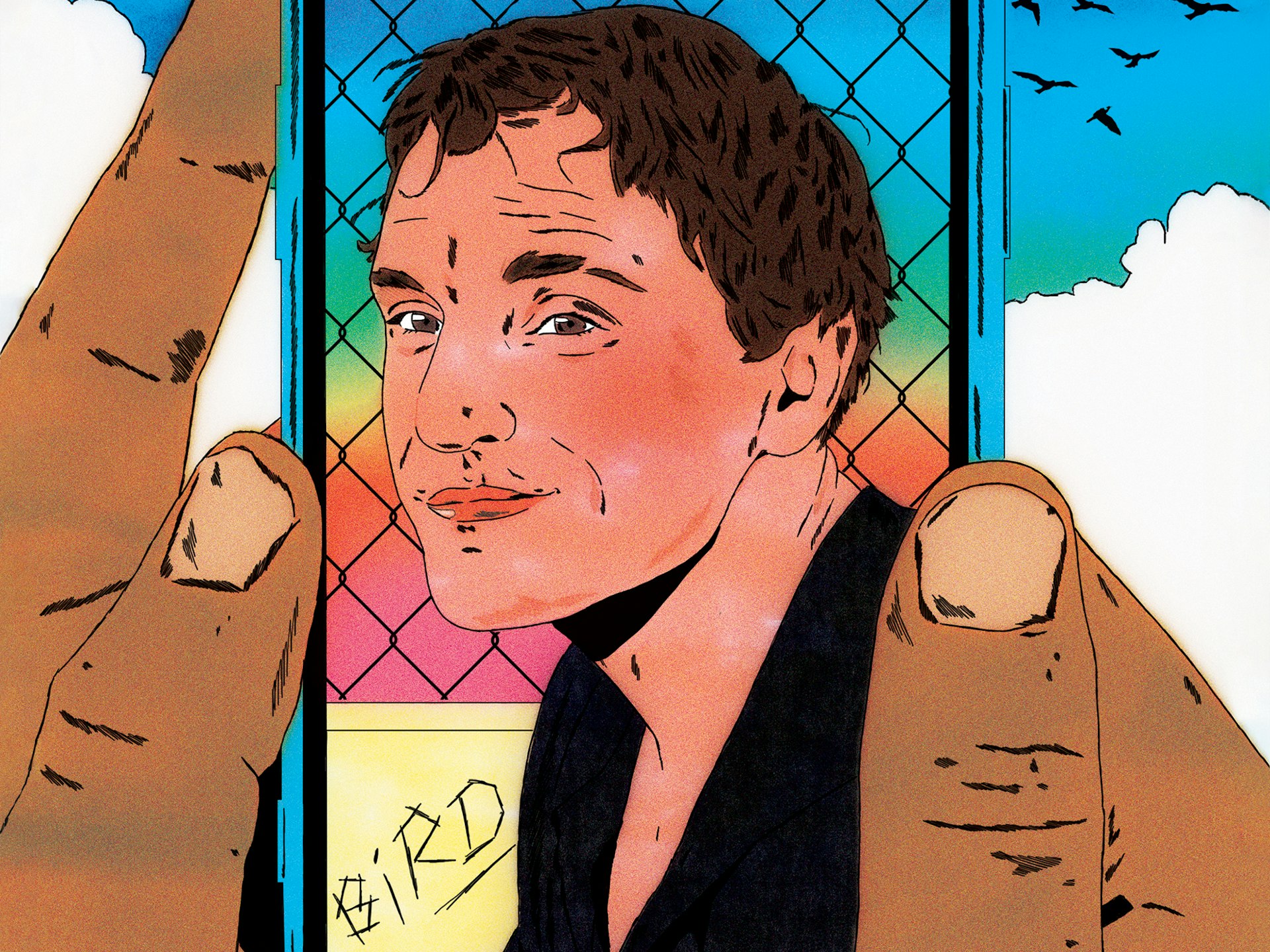
Barry Keoghan, Franz Rogowski and Andrea Arnold on ‘Bird’
The new issue of Little White Lies brings Andrea Arnold’s sixth feature to life with a thematic voyage down the Thames estuary.
Written by: Maisy Hunter
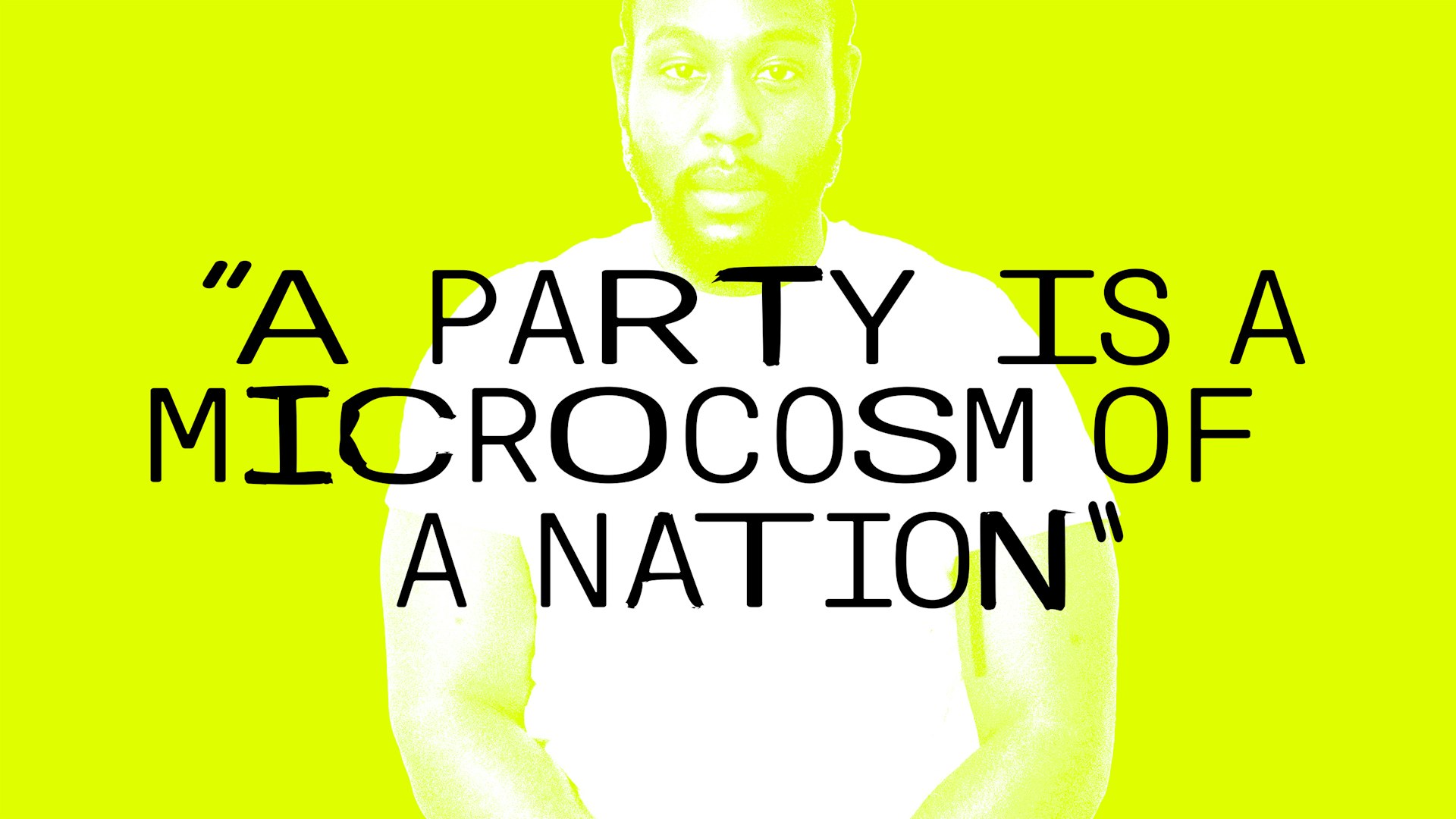
“A party is a microcosm of a nation”: Caleb Femi on the decline of the house party
To celebrate the publication of his new collection ‘The Wickedest’, Isaac Muk caught up with Femi to talk more about the work, the future of the shoobs, and discuss why having it large on a Saturday night should be cherished.
Written by: Isaac Muk
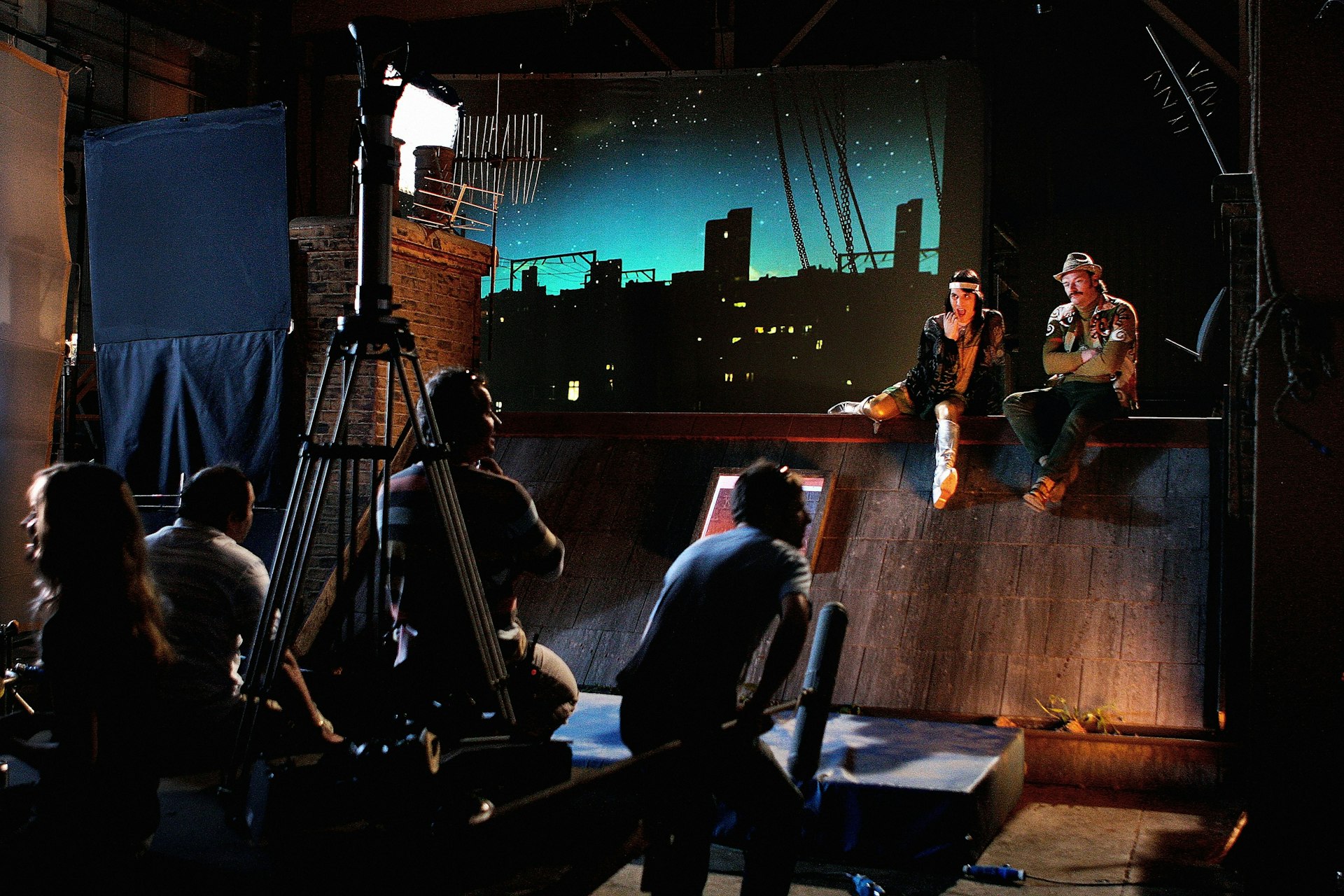
Celebrating 20 years of The Mighty Boosh
A new exhibition takes a look behind the scenes of the iconic show two decades after its BBC3 premiere.
Written by: Isaac Muk
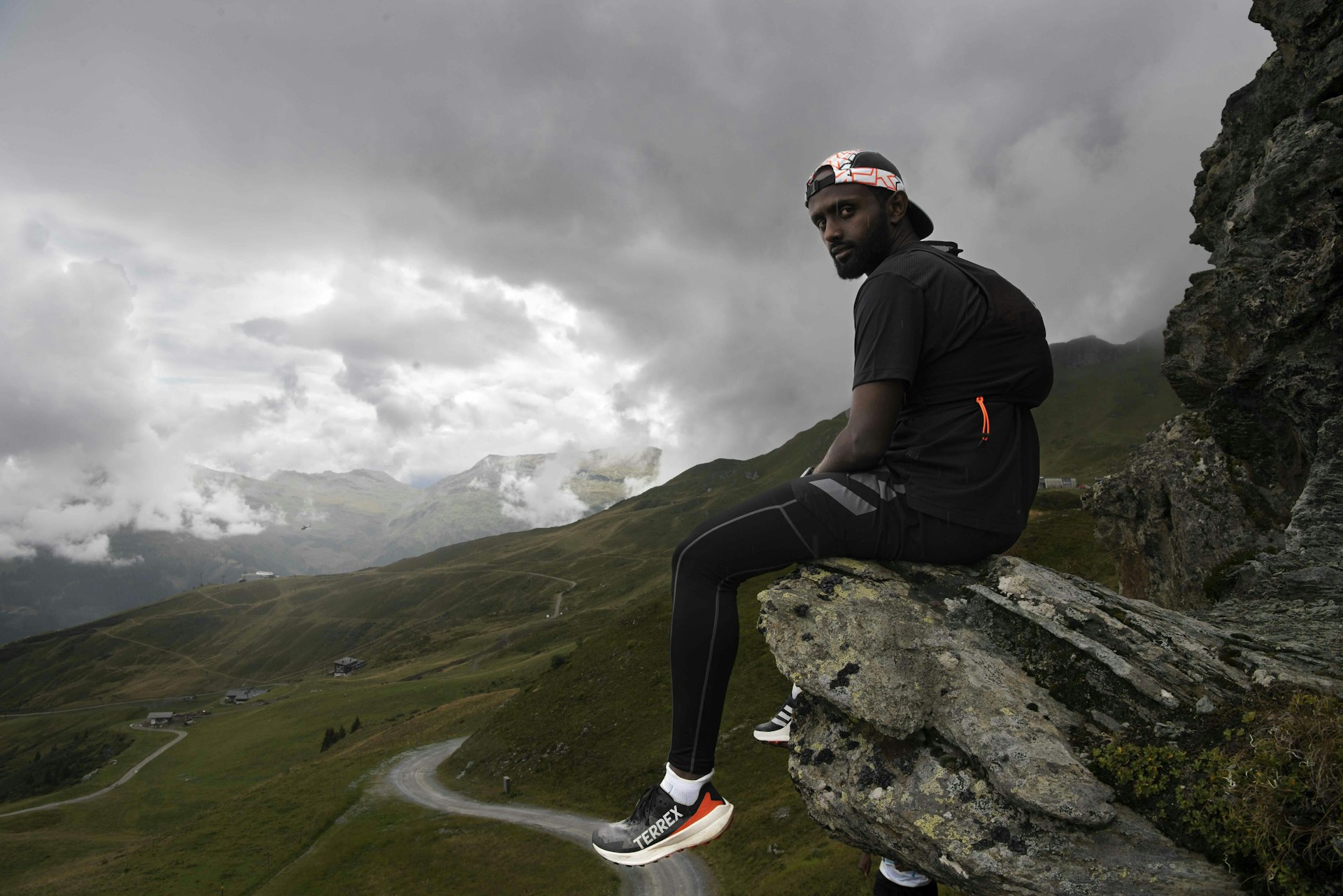
We Run Mountains: Black Trail Runners tackle Infinite Trails
Soaking up the altitude and adrenaline at Europe’s flagship trail running event, high in the Austrian Alps, with three rising British runners of colour.
Written by: Phil Young
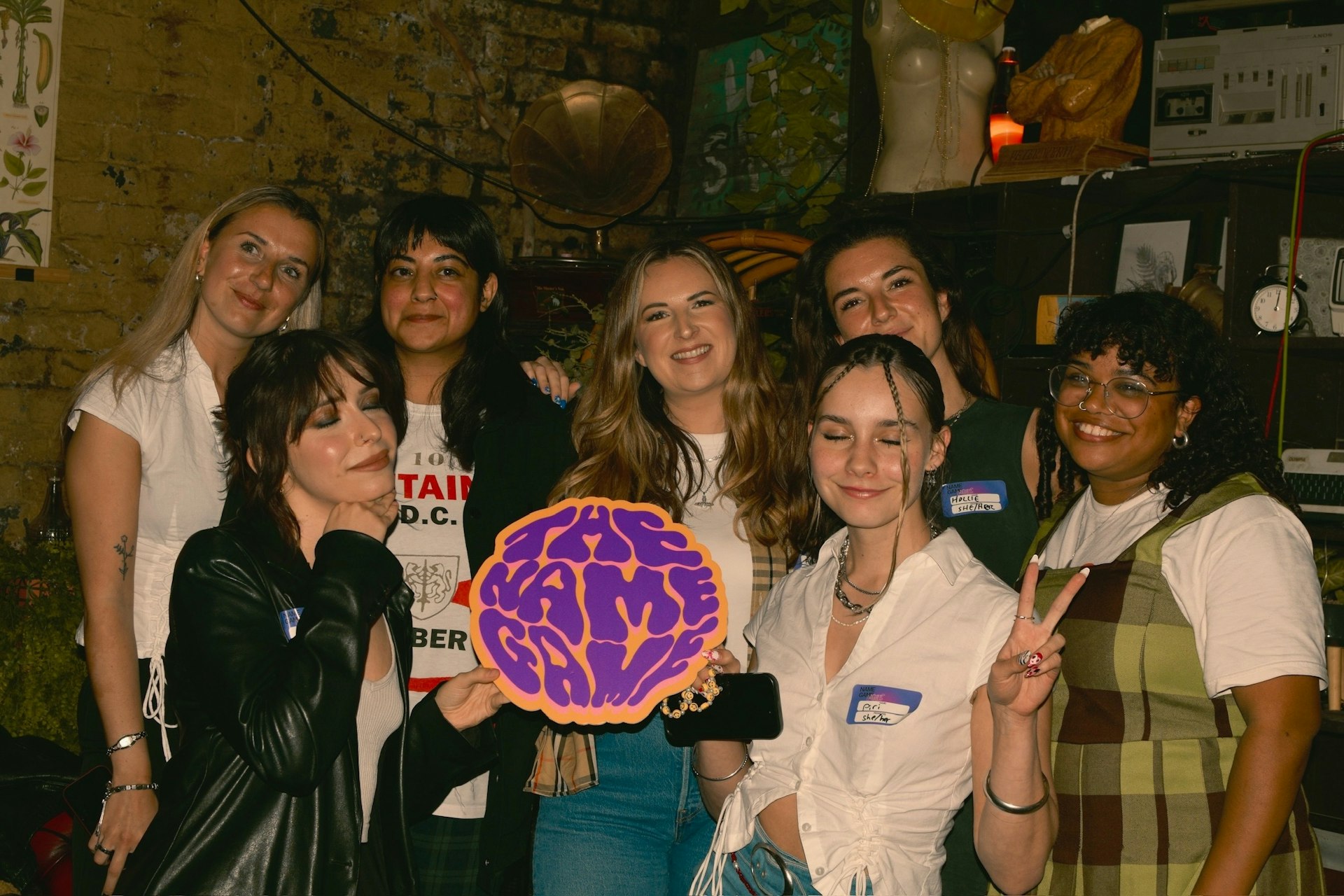
The organisation levelling the playing field in the music industry
Founded in 2022, The Name Game is committed to helping female, non-binary and trans people navigate the industry.
Written by: Djené Kaba